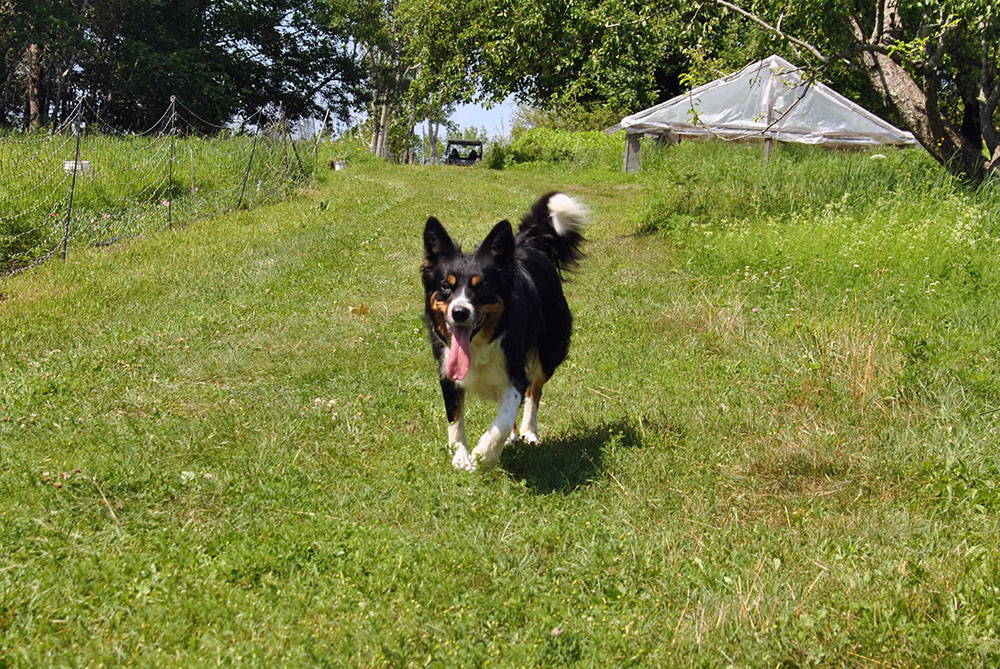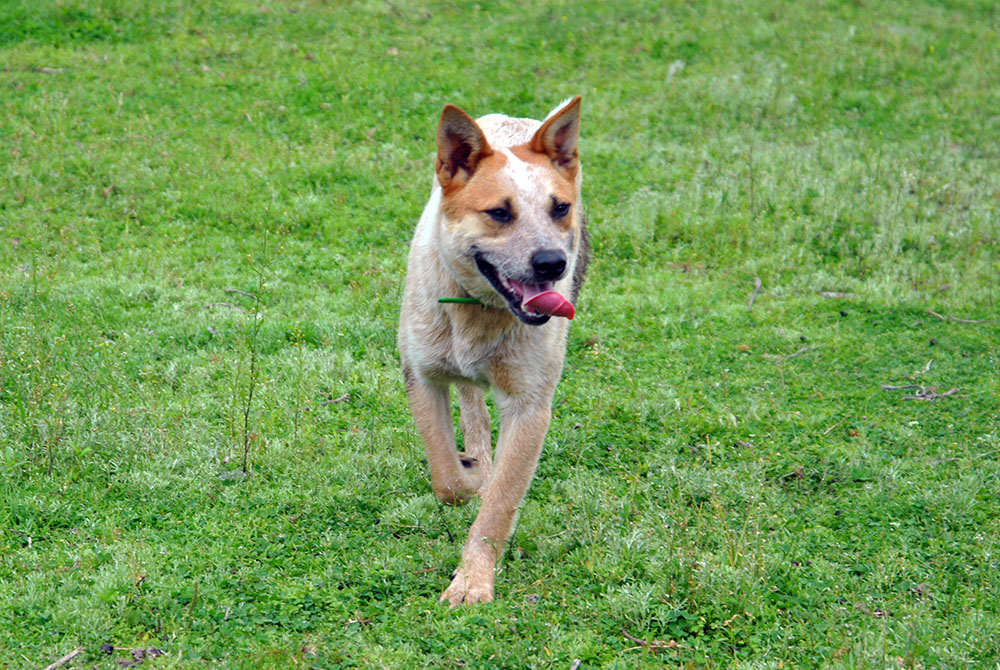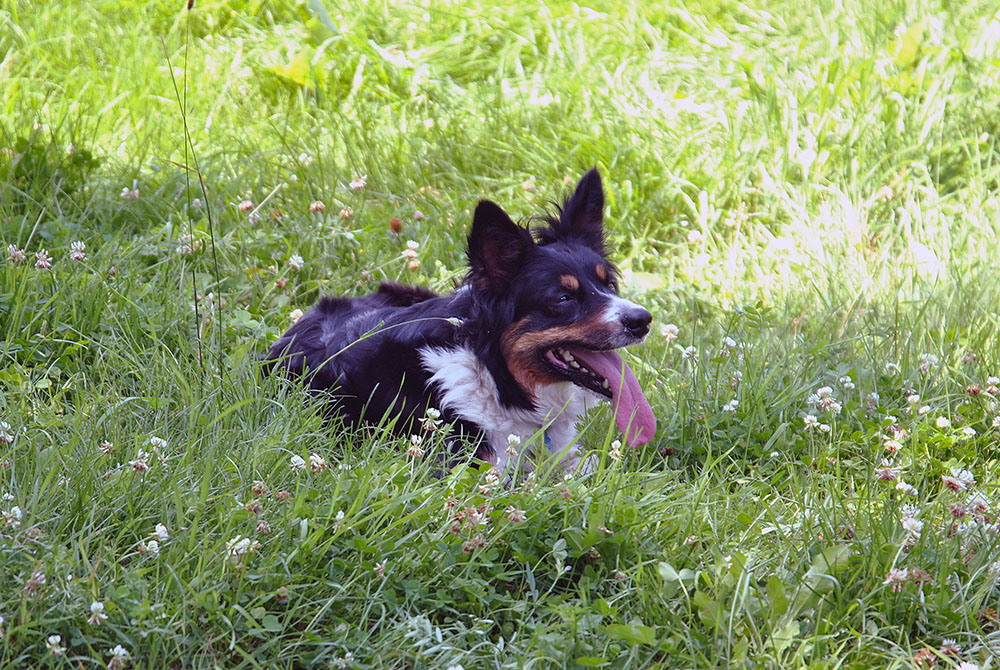How to choose herding dogs

Whether you have grazing cows, rambling sheep or foraging goats, herding dogs can help to manage flocks on your farm or homestead.
“If you have livestock that you’re trying to manage, a dog is incredibly helpful,” said Rusty Jeffers, board member of the American Herding Breed Association. “If you’re trying to do anything besides have a couple sheep to mow your lawn a dog is going to be an invaluable tool.”
Choosing the best herding dog, however, can be a tricky balance of picking the right breed, the right dog and the right dog breeder.
“In choosing a working dog, you want to find a really good genetic line,” said Charlotte Young, co-owner of Shalom Orchard Organic Farm and Winery. “You don’t want to buy a rescue.”
Even if you choose a herding breed, purchasing a dog specifically bred for herding is important. Young and her husband, Jim Baranski, own two dogs from herding breeds: an Australian shepherd and a border collie.
“Our Australian shepherd, Oliver, is a rescue and he doesn’t have the [herding] instinct,” Young said. “Fern [our border collie] does.”
Baranski refers to Oliver as a “push-button dog.”
“He’ll do what you tell him, but doesn’t have the instinct [to go around the sheep on his own],” Baranski explained.
Though herding dogs can be pets, keeping a herding dog is decidedly different from caring for any other dog you may have.
“Herding dogs can be good pets, but they need to be working,” Jeffers said. “They require a fair amount of your attention and time. It’s not like a utility tractor that you can pull out once a month. You need to engage with that dog every day.”
Jeffers, who has been working with, training with and competing with herding dogs for the last 20 years, said that choosing a herding dog should be a carefully considered process.
“There are a lot of factors involved,” Jeffers said. “It depends on what [you] want or need the dog for and what livestock they have. If you’re doing mostly barn work and pen work you’re going to want a different kind of dog than if you want sheep ranging out in a huge field.”
If you choose a good dog, they will live — and work — for a long time.
“They will generally live between 12 and 15 years,” Jeffers said. “Depending on the individual dog, normally you retire them somewhere between 10 and 12 [years].”
To select the best breed of herding dog for your farm or homestead, Jeffers said to ask yourself a few questions beforehand:

What kind of livestock do I have?
Certain breeds of dogs are better suited to herd specific kinds of livestock.
“If you have cows, you will want a different dog than you would with sheep,” Jeffers said.
For example, Jeffers suggested an Australian cattle dog or Australian shepherd for cows, while he said border collies are better for sheep.
What do I want the dog to do?
Consider what kind of help you need around your farm or homestead. Are you mostly moving your flock around inside pens or a small area, or are you working with large swaths of land?
“The limitation is more dogs that work well in large areas,” Jeffers said. “There are really only a couple breeds that scope out, or go long distances.”
If your flock roams around a large property, Jeffers recommended border collies and Australian Kelpies.
What is my climate?
The climate in your area may determine which physical attributes are favorable for the breed of herding dog you choose.
“In California, where it’s hotter, smooth-coated dogs are much more popular because they stay cooler and they don’t get weeds in [their fur],” Jeffers said. “If you’re in Montana, you probably want a dog with a heavier coat.”
For that reason, Jeffers explained, In the same vein, other local farmers with herding dogs can be a helpful resource for choosing the best breed.
“Probably the best thing to do is talk to people who live near you who do the same sort of thing,” Jeffers said. “The best resource you’re going to have is people you know the area who have dogs. [Ask them] where they [got] their dog.”
Do I want to train the dog?
Jeffers said that you should consider whether you want to get a dog already trained or do you want a puppy that you’re going to train yourself.
“Getting a trained dog is significantly more expensive, but it’s going to be hard to train a dog if you don’t know what you’re doing,” Jeffers said.
If you want the experience of training your own herding dog, Jeffers said to seek out mentorship from experienced professionals.
“Go find someone who will give you lessons and train you,” Jeffers said. “I learned a lot of what I learned from ranchers. You can look on the American Herding Breed Association website for a list of training facilities.”
Ultimately, the training for the dogs will depend on the dog, which is why it is important to work with someone who knows what they are doing if you do not.
“It’s not an assembly line,” Jeffers said. “Training one dog and the next dog is different. That’s why it’ since to find a mentor or somebody who knows a little bit about dogs.”

Where will my dog live?
Some farmers and homesteaders prefer to have working farm dogs stay in a kennel with other animals, while others want their herding dogs to be part of the family. Jeffers said that whether you have your herding dog live inside will impact how the dog is trained.
“That’s going to be an important thing to know when you’re looking for a dog,” Jeffers said. “Some dogs are not bred for that and they don’t do well with that.”
